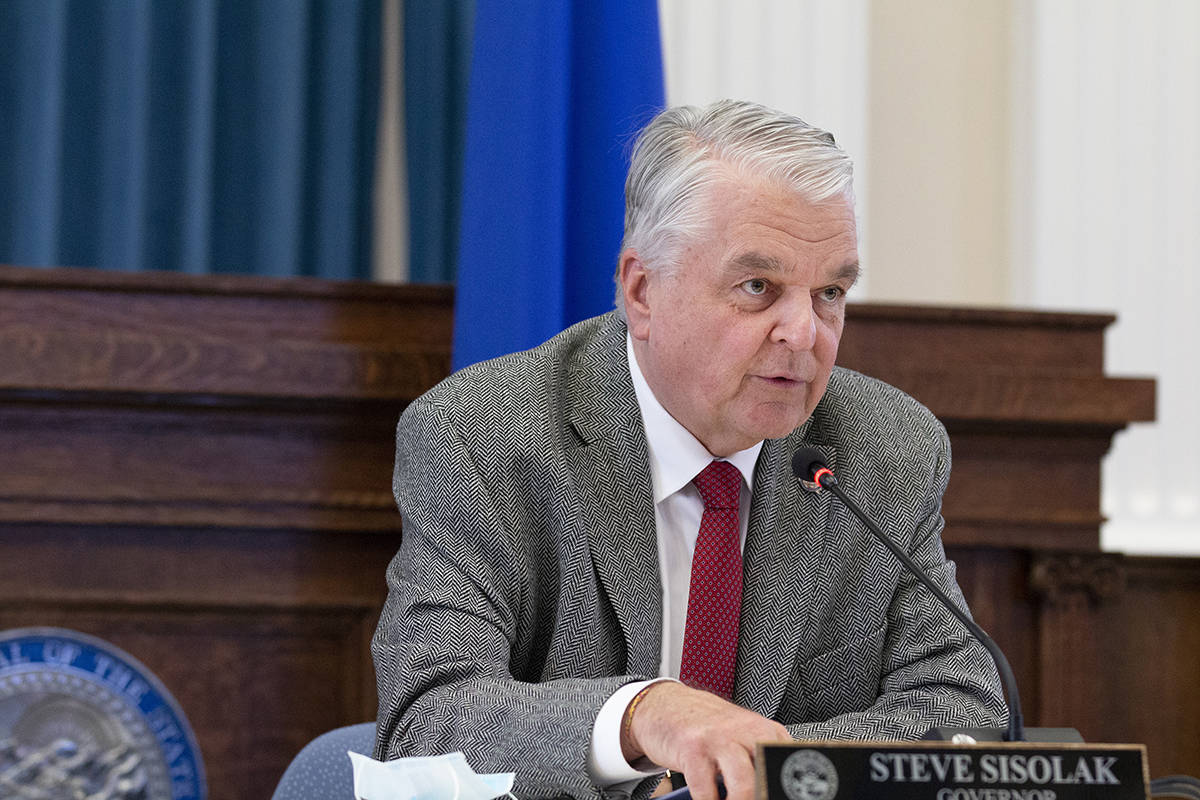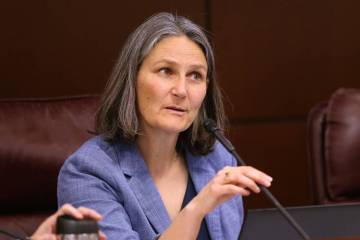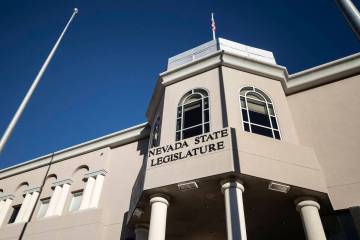‘Innovation zone’ bill dead in 2021 session
Gov. Steve Sisolak’s cornerstone economic development pitch that would have allowed wealthy tech companies to form separate, county-like governments in the state won’t be moving forward in the 2021 Legislature.
Sisolak’s office on Monday confirmed that the proposal, which has faced harsh criticism from progressives, rural counties and environmental groups since details were revealed in February, will be scrapped and replaced with an interim committee of lawmakers who will study the concept before the 2023 session.
In a statement included in a news release Monday morning, the first-term Democratic governor said he recognized the limitations of the state’s 120-day biennial lawmaking session.
“Innovation Zones is a bold proposal for our State that deserves additional attention and discussion — and not under the pressure of less than 40 remaining days in the current legislative session. I know that legislators, stakeholders and Nevadans still have questions, and I want those questions to be discussed and answered,” Sisolak said in a statement. “I want people to be enthusiastic about this opportunity, not skeptical about a fast-tracked bill. Nevadans deserve that, and I believe this Special Joint Committee is a perfect solution to explore this economic opportunity.”
The governor had hinted at the waning fate of the bill last week, saying he wasn’t sure “how much time we have” left in the session. The Legislature ends on May 31.
Highlighting policy
Sisolak initially pitched the Innovation Zones concept in his State of the State address ahead of the lawmaking session as a way to boost Nevada’s economic diversity and job growth, all without the help of tax abatements or other incentive packages.
An bill to create the zones was never formally introduced in the Legislature, but a draft proposal was unveiled on a website promoting the concept.
According to the draft, any tech company with at least 50,000 acres, plans to invest $1 billion and an “innovative technology” — criteria that just happened to fit Blockchains LLC perfectly — could have formed an Innovation Zone, an autonomous local government that would eventually have the same authority as a county.
Dropping the proposal in favor of a study means that Blockchains LLC CEO Jeffrey Berns’s vision to build a smart city in rural Nevada will remain on hold, potentially permanently.
Blockchains LLC bought 67,000 acres in Storey County in 2018, and Berns had committed to building a smart city that ran entirely on blockchain technology once the legislation was approved.
But what happens to that land now that the legislation has stalled remains up in the air. Berns told the BBC in March that if the bill did not pass, the land “would be sold.”
Big push comes up short
Despite a full-court press from the powerful lobbying firm R&R Partners, which included TV and digital ads and a media blitz promoting the zones and Berns’s smart city pitch, Sisolak’s proposal has failed to gain much traction in the Legislature from either side of the aisle. Meanwhile, a growing coalition of rural counties, progressive groups and even Sisolak’s fellow Democrats in the Legislature have come out publicly against giving tech companies such governmental power.
“Government powers are not a Christmas gift that can be bestowed to another entity. And it’s not something to be delegated to a private corporation,” Sen. Dina Neal, D-North Las Vegas, told the Review-Journal last week.
Even the late night talk show circuit had its way with the concept.
In March, “Late Show” host Stephen Colbert highlighted the idea on the show’s recurring “Uh-oh” segment, going so far as to compare it to a James Bond villain.
“These corporate governments would even be subject to local governments. They’d be carved out separately, as so-called Innovation Zones, and would be given the same authority as counties. Yikes!” Colbert said. “We already have a word for masters of the universe who hold the same power as governments. It’s called feudalism. Do you really want to establish a society based on the middle ages? Good luck!”
Other serious questions about the proposal and Berns were raised after a pending sexual harassment lawsuit against the CEO and his wife became known publicly. In that lawsuit, a former nanny is accusing Berns and his wife, Mary, of trying to groom her in order to get her to “participate in three-person sex.”
Sisolak did not directly answer when asked last week if those allegations raised concerns about Berns and the Innovation Zones proposal.
“I don’t want to get into the personal civil actions against him, and the facts behind that. That’s not my place,” the governor said.
Lawmakers respond
Democratic Assembly Speaker Jason Frierson, D-Las Vegas, said that members of his caucus had hesitations about the proposal, including questions about social services within such a community, water use and collective bargaining.
Frierson said he sees the interim study as a good opportunity to get answers to those questions, as well as address concerns from other interested parties.
The proposed interim study would be concluded by Dec. 31 and would include at least one public meeting per month. At the end, the committee could recommend, among other things, not moving forward with the proposal, submitting a proposal for the 2023 Legislature, or potentially recommending legislative action before 2023 — in other words, a special session.
Assembly Minority Leader Robin Titus, R-Wellington, said in a statement Monday that she was happy that the proposal would become a study.
“Stakeholder input should have been step one, and I look forward to seeing broader impact studies,” Titus said.
Her counterpart in the Senate, Senate Minority Leader James Settelmeyer, said that the governor “failed to deliver on his premier economic development policy.”
“The majority party controls the entire legislative process. Democrats did not run out of time; they just prioritized a Billionaire over millions of Nevadans,” Settelmeyer said in the statement.
Contact Capital Bureau Colton Lochhead at clochhead@reviewjournal.com. Follow @ColtonLochhead on Twitter.





























